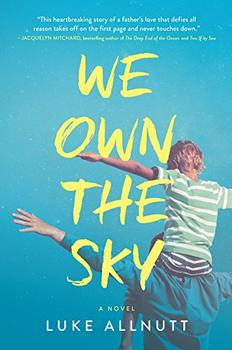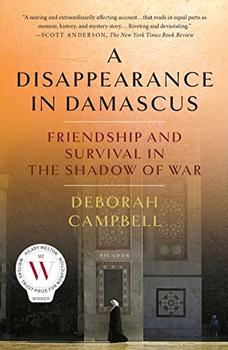Summary | Excerpt | Reviews | Beyond the book | Read-Alikes | Genres & Themes | Author Bio

On Friday, November 13, 2015, a series of coordinated terrorist attacks in Paris left 130 people dead, 89 of them at the city's Bataclan theater (see 'Beyond the Book'). Antoine Leiris's wife Hélène was at the Bataclan that night. In You Will Not Have My Hate he writes about waiting to learn her fate and the subsequent process of grieving her death.
The title is somewhat deceptive because it makes one believe that the book might not only detail the author's experiences but also discuss his response to terrorism. In fact, only a few pages move the focus beyond the intimate portrayal of one man's grief. The book's genesis is a Facebook posting, made a few days after Hélène's death, which encapsulates Leiris's opinion about the attackers:
On Friday night, you stole the life of an exceptional being, the love of my life, the mother of my son, but you will not have my hate. I don't know who you are and I don't want to know. You are dead souls. If that God for whom you blindly kill made us in his image, each bullet in my wife's body will have been a wound in his heart.
So, no, I will not give you the satisfaction of hating you. That is what you want, but to respond to your hate with anger would be to yield to the same ignorance that made you what you are. You want me to be scared, to see my fellow citizens through suspicious eyes, to sacrifice my freedom for security. You have failed. I will not change.
This important sentiment deserves to be shared widely. The narrative, however, is mostly an expression of the author's anguish at the loss of his soulmate and the pain of knowing their 17-month old son Melvil will grow up without his mother, too young to process her death.
Leiris has an impressive ability to surface above the fog of his grief and catalog his experiences and others' reactions. The work doesn't feel episodic even if the author admits the book doesn't relay a complete story: "There are only these instants that rise up, taking me by surprise. It was these moments I had to write about, Polaroids of a life that has not yet gotten its breath back."
Leiris's writing, ably translated by Sam Taylor, borders on poetry and is astonishing in its beauty:
At the day-care center, everyone knows. When I arrive each morning, every person I see wears a mask. The carnival of the dead. Even if I tell them the fable of a man who will not lose control, I cannot persuade them to take off the masks. I know that, for them, I am no longer me: I am a ghost, the ghost of Hélène.
Melvil is alive. Almost as soon as he gets there, the masks come off. He enters on tiptoe, says good-bye to me, smiles, and one burst of laughter is all it takes for the funeral faces to fall to the bottom of the toy chest.
Leiris meticulously chronicles the swirl of emotions he experienced—from the moment he saw the horrifying headlines on the television news to the first glimmer of hope that he might begin to enjoy life again, weeks later. With breathtaking intensity, he writes about his initial inability to connect events to his wife ("I should call [Hélène], tell her it would be a good idea to take a taxi home") to the increasing fear that she was among the casualties. Although all grief is unique, in exposing his own so nakedly he hits sympathetic chords that transform it into something that universally resonates. His sorrow becomes our own. Readers who have known sudden, tragic loss will undoubtedly relate completely to Leiris's reactions, while those who haven't will better understand what it's like to lose the person around whom one's life revolves.
You Will Not Have My Hate is exceptionally slim, but it packs a powerful punch. Not everyone will be able to handle such a deeply sorrowful work, but those who do will likely be profoundly moved.
![]() This review was originally published in The BookBrowse Review in November 2016, and has been updated for the
October 2017 edition.
Click here to go to this issue.
This review was originally published in The BookBrowse Review in November 2016, and has been updated for the
October 2017 edition.
Click here to go to this issue.

If you liked You Will Not Have My Hate, try these:

by Luke Allnutt
Published 2019
A triumphant story about love, loss and finding hope - against all odds.

by Deborah Campbell
Published 2018
In the midst of an unfolding international crisis, renowned journalist Deborah Campbell finds herself swept up in the mysterious disappearance of Ahlam, her guide and friend. Campbell's frank, personal account of a journey through fear and the triumph of friendship and courage is as riveting as it is illuminating.
Winner of the Hilary Weston ...
The fact of knowing how to read is nothing, the whole point is knowing what to read.
Click Here to find out who said this, as well as discovering other famous literary quotes!
Your guide toexceptional books
BookBrowse seeks out and recommends the best in contemporary fiction and nonfiction—books that not only engage and entertain but also deepen our understanding of ourselves and the world around us.